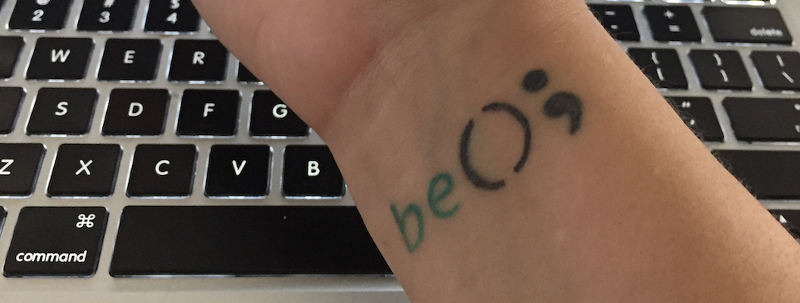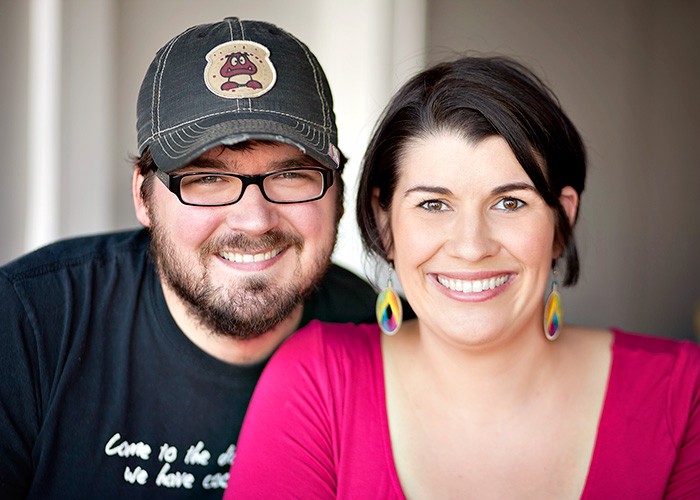by Andrea Goulet
FreeCodeCamp and the JavaScript Tattoo

“Wow! Your software business sounds amazing, Andrea. So, tell me…do you code, too?”
Every time I’ve heard this question over the past six years, it’s grated on my confidence.
Nevermind that I’ve built websites from scratch.
Nevermind that I’ve developed a business around modernizing codebases.
Nevermind that can confidently describe techniques like reducing cyclomatic complexity, refactoring duplication, using branches in source control, or Test Driven Development (TDD).
To most people, I simply don’t “look like” a software developer. Hence, the dreaded question when people meet me: “So, do you code?”

As a high achiever, I’m particularly susceptible to Imposter Syndrome, and the area in my life where I feel most vulnerable is my technical skills. So, when someone asks me if I code, it feels like a punch in the gut. Even though the answer to this question is a clear “yes”, I still feel like a fraud sometimes.
This year, I decided no more. I resolved to shake this idea of not being good enough for good and get serious about finding a program to help me achieve my goals. This proved to be more challenging than I originally thought. Here were my criteria:
- No relocation. My family is too important. I have small children, and I’m still nursing one of them. We have a lot of family in town and rely on them for child care. Moving outside of my hometown simply wasn’t an option.
- Self-paced. I own a business and running that comes first and foremost. Getting an accreditation is a nice-to-have, not a must-have, for being successful. I needed to find a way to fit this program into running a business and raising young children.
- Current technology. Owning a software business actually gave me a good insight into what colleges are teaching these days. Unfortunately, most curricula are woefully behind the times. I needed to make sure what I was learning was applicable to the problems I was seeing in my business.
- Work on real-world projects. I do best when I’m learning with a real problem that gives real benefit. Theory is great, but it only goes so far.
- Sense of community. As an extrovert, it’s been a real challenge to lock myself into a room for eight hours a day to hash out a problem. I knew if I was going to be successful, this program had to tie into a community of other students that I could connect to.
After a lot of searching and trial and error, I enrolled in FreeCodeCamp. This had all the features I was looking for with the added benefit of being absolutely free to students. After six months of going through the program, I’ve been thrilled with the progress I’ve made. Here are some of the things I love most about being a student at FreeCodeCamp:
- Seeing the big picture. I’m a strategist, so I do best when I can see the big picture first and then dive into the details. I love how FreeCodeCamp lays out a detailed map of their entire program. This gives me a sense of progress.
- Built for people like me. Quincy Larson, who leads the team over at FreeCodeCamp, has written about his experiences with Imposter Syndrome. Many of the features of FreeCodeCamp came about because Quincy was dealing with some of the same challenges I was.
- Really well-run. Quincy runs a tight ship. I’ve been amazingly impressed with FreeCodeCamp’s communication and the sense of community they’ve created. They’re transparent and share valuable information regularly. They have lots of engagement points so it keeps me going even when I feel like quitting.
- Small and frequent wins. Each module in the beginning has a very discrete task. This helped me move quickly and build my sense of confidence. It also helped me spot patterns and get lots of light bulb moments that just didn’t happen with other programs.
- In-person connections. It’s great to have the online community, but I love how FreeCodeCamp also encourages people to get together in person. Last month, I coordinated an event at a local co-working space. Thirty people showed up and I was able to mentor people who were just starting. Teaching is one of the best forms of learning.
As I started making my way through the FreeCodeCamp program, my confidence grew. So much so that I decided to get a tattoo of a JavaScript function on my wrist for my birthday this year. Now, when I start to feel like an imposter, I look down at my wrist and realize that I can be anything I want. My life isn’t defined. This confidence boost is usually just what I need to lean into the discomfort of learning something new and focus on solving the problem.
Now, if you’ll excuse me, I have some code to write.
Andrea Goulet is the CEO of Corgibytes, a software development shop dedicated to modernizing codebases. She speaks frequently about the challenges that come with being a woman in the software industry and enjoys hosting FreeCodeCamp events at her local co-working space. She loves watching her kids explore the world and is a sucker for a good physics documentary. You can recognize her by the JavaScript tattoo on her wrist.